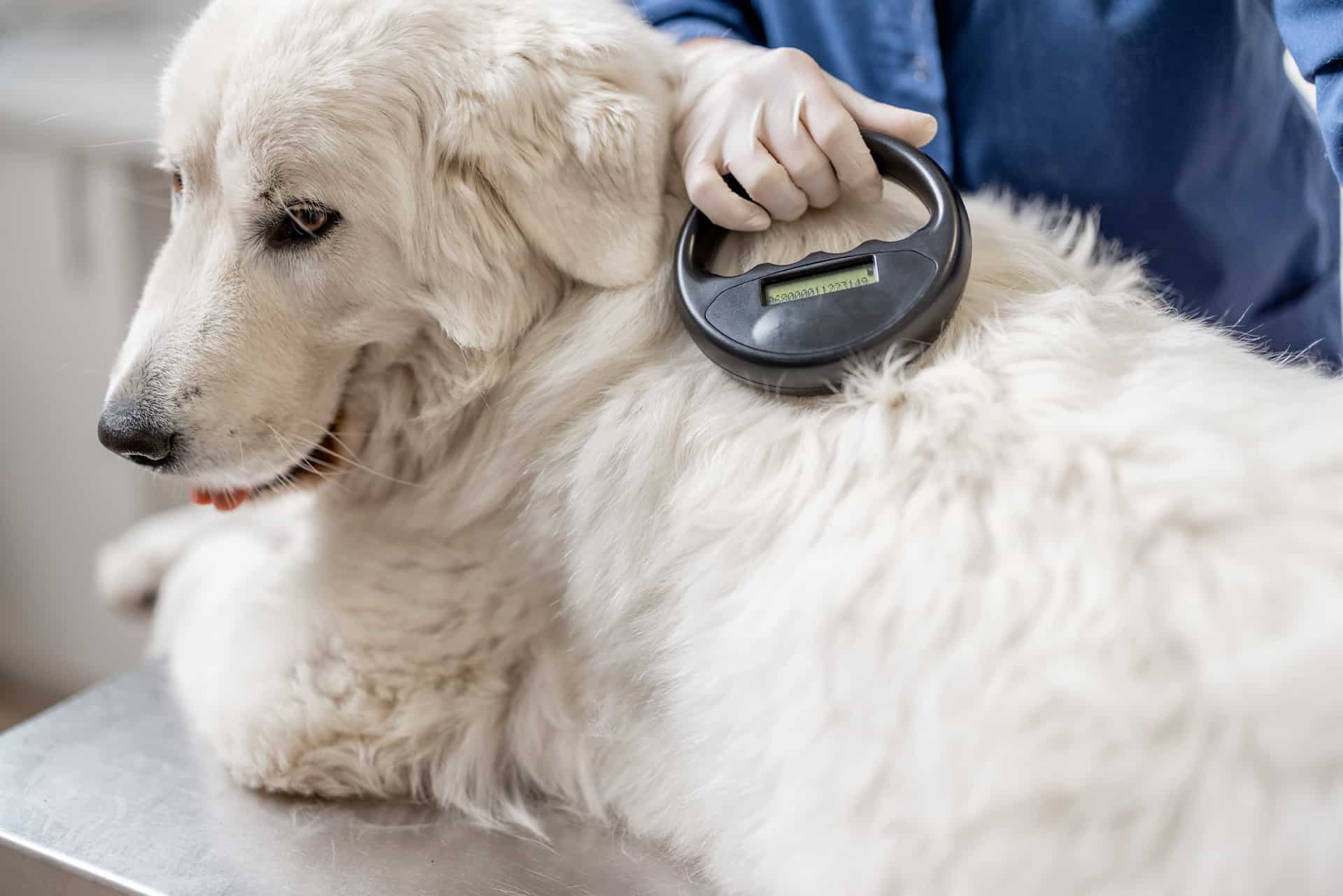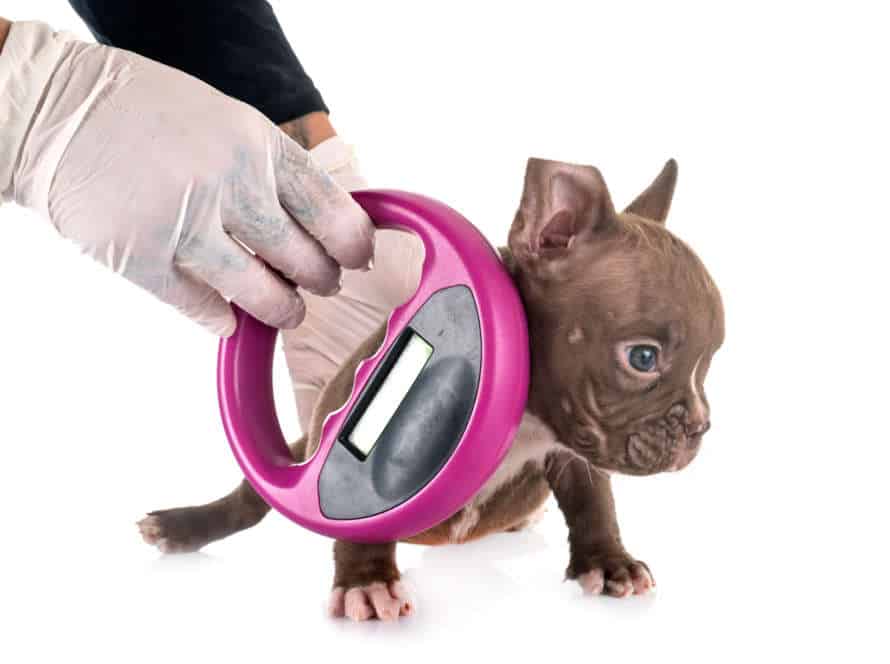The Basics of Microchipping
Microchipping is a tiny electronic gadget. It is implanted beneath the animal’s skin. The device stores info about the pet and its owner. Such as address, contact info, etc. This helps reunite lost animals with their owners.
This article will explain the microchipping process, cost and potential perks.
What is a Microchip and How Does it Work?
A microchip is a small electronic device that’s put under an animal’s skin to provide ID and tracking. It has a special ID code that can be read with a scanner. A vet or trained person injects the microchip between the shoulder blades with a needle. After that, the animal’s ID and owner’s info go into a database. If the animal gets lost, a shelter or vet can use a scanner to get the owner’s contact info from the database. The cost of microchipping varies depending on the location and provider. It’s a one-time cost and worth it compared to losing or replacing a pet.
Pro tip: Always keep your contact info up-to-date in the microchip database.
The Importance of Microchipping Your Pet
Microchipping your pet is key to their safety and your reunion if they ever get lost. The microchip is the size of a grain of rice and holds a special ID number that can be read using a handheld device.
Here are some facts:
- The procedure is quick and safe, like a regular vaccine.
- The cost is low, from $25 to $50.
- Most pets, such as cats, dogs, rabbits & horses can be microchipped.
- It’s important, as it’s a permanent form of identification, unlike collars or tags that can be lost.
In conclusion, microchipping is a small price for peace of mind. It’s a simple way to keep your pet safe.
The Cost of Microchipping Compared to Other Identification Methods
Microchipping is a great, reasonably priced way to recognize and trace your pets. It’s more cost-effective than collars, tags, tattoos and electronic devices.
The cost of microchipping typically ranges from $25 to $50. It’s a one-time payment, and often includes implanting the microchip, registration fees, and sometimes a lifetime enrollment.
Collars and tags need to be replaced or updated regularly, and can be taken off or fall off easily. Tattoos fade over time and may be illegible when the pet ages. Electronic devices, like GPS trackers, are pricier, require battery replacements and service fees, and can be ineffective in some places.
Microchipping your pet is a valuable investment. It gives you peace of mind, and a great way to find your pet if they get lost or stolen.
Factors Influencing the Cost of Microchipping
Deciding to microchip your pet can be pricey. To make a wise choice, it’s important to understand the cost factors. Let’s look at these and see how they affect the total price of microchipping your pet.
Geographic Area and Services Offered
Geographic area and services affect the cost of microchipping your pet. In pricier areas, or with more expensive vet services, the cost of microchipping increases. The type of service also matters – for example, if it’s done in-house or through a mobile service.
The benefits of microchipping outweigh the cost. It increases the chance of reuniting you with your pet if they become lost or stolen. Plus, many places require pets to be microchipped before adoption.
Do your research. Compare prices and services from different vet clinics and animal welfare organizations in your area to get the best deal.
Type of Animal and Breed
Microchipping your pet comes at a cost. Usually, it ranges from $25 to $50. But bigger animals and specialized breeds may cost more. Factors that affect the price include the microchip itself, vet fees, and additional services like registration and GPS tracking.
It’s a small price for the relief of knowing your pet can be found and returned if lost or stolen.
Pro Tip: Adopting a pet from a local animal shelter may come with discounted or free microchipping services.
Additional Services and Fees
Considering the cost of microchipping? It’s essential to consider any extra services and fees that could affect the overall price. Such as:
- Registration – Some microchip companies have an extra fee for registering your pet’s microchip in their database.
- Examination – Your veterinarian may charge a consultation fee for examining your pet before microchipping.
- Anesthesia – If your pet needs sedation for the procedure, there will be added costs for anesthesia administration.
- Age, size and breed of your pet can affect the cost too. Usually, microchipping costs $20-$50 and extra fees may be up to $10-$20.
The cost of microchipping is worth it for the peace of mind it provides. Pro Tip: Make sure you know about any extra services and related fees when talking to your vet about microchipping.
The Benefits of Microchipping Your Pet
Microchipping a pet might seem daunting and expensive. But, if your pet gets lost or stolen, it could be worth the cost. Microchipping makes identifying your pet much easier. It also saves time and money for both you and your vet. This technology has been around for a while and its benefits can be seen. Let’s explore the advantages of microchipping a pet!
Higher Chance of Being Reunited with Your Pet
Microchipping your pet is a must for higher chances of being reunited if they get lost or stolen. A microchip is inserted under their skin containing a unique ID number, readable by handheld scanner. It’s permanent and can’t be taken off or lost, unlike a collar or tags. The cost depends on where you live and what vet you use, but it’s usually affordable. The security of knowing your pet is safe if they’re lost outweighs the cost.
The American Veterinary Medical Association states that pets with microchips have over twice the chance of being reunited with their owners compared to those without. So, it’s worth the money to get your pet microchipped and keep them safe in an emergency.
Pro Tip: Register your pet’s microchip with a trusted pet recovery service, making sure the information is current so you can be contacted if your pet is ever found.
Avoid High Costs Associated with Losing a Pet
Losing a pet can be distressing. The cost of finding and retrieving them can add to this. Microchipping is a reliable and cost-effective way to ensure that your pet is easily identified.
Benefits include:
- Permanent identification, as chips are inserted under the skin and can’t be lost or damaged.
- Quick and safe identification, as veterinarians and shelters scan the microchip with a special device.
- Low cost, as many shelters and clinics offer low-cost services.
The cost of microchipping is valuable compared to losing a pet. Tip: Update contact info with the microchip registry regularly so your pet can be quickly reunited with you in case they get lost.
Peace of Mind for Pet Owners
Microchipping your pet is a great way to keep them safe. It’s a safe and cheap procedure. A tiny electronic chip with a unique ID is implanted under their skin. This is registered in a national database with your contact details.
Benefits include:
- A higher chance of finding them if they’re lost or stolen
- Shelters can’t euthanize them, and you save money and time looking for them.
The cost of microchipping is usually between $25 and $50. So, it’s a small price for the peace of mind that comes with knowing your pet can be identified and returned to you.
The Risks of Not Microchipping Your Pet
Microchipping your pet is an affordable, simple and straightforward method to increase the possibility of finding them if they ever get lost. Though it’s a easy process with low risk, there are certain risks and dangers with not microchipping your pet. In this section, we will thoroughly examine why microchipping is essential and the potential risks of not microchipping.
Increased Risk of Losing Your Pet
Microchipping your pet is an important, small investment. Without it, the chance of losing your pet is higher. Microchipping increases the likelihood of being reunited with your furry friends, and also provides an extra layer of security. It’s quick, easy and not painful.
According to AVMA, only 22% of lost dogs are reunited with their family. However, the return-to-owner rate for microchipped dogs is over 52%. The cost of microchipping is low compared to the sorrow of losing your pet. It’s between $25 and $50. Make sure your pet wears tags and get them microchipped. It’s a small investment that could save you from heartache.
Potential for Animal Shelters to Euthanize Pets Quickly
Animal shelters often have to euthanize pets due to an influx. Without any ID like a microchip, pets are more likely to be put down.
Microchipping your pet mitigates this risk and only costs $20-$50. It helps reunite you with your pet if they’re lost or stolen. Statistics show that microchipped dogs are twice as likely to make it back home, while cats are 20 times more likely. It also prevents them from being mistaken for stray or feral animals and being euthanized.
The cost of microchipping is minimal compared to the peace of mind it brings.
Difficulty in Proving Ownership in Legal Disputes
No microchip for your pet? That can cause trouble when it comes to proving ownership in court. Microchipping can make sure your pet finds their way back to you faster, and avoid complicated procedures. Without microchipping, you could lose your companion forever if there’s theft, a natural disaster, or a lost and found emergency. Collars and tags can fall off or be taken away, leaving your pet unidentifiable.
The cost of microchipping is low and it’s a sure thing for safety. Plus, it helps with legal processes if your pet is lost or stolen. Don’t risk it! Get your furry friend microchipped now.
Conclusion and Final Thoughts on Microchipping costs
Microchipping your pet could be a great option! It increases the chance of finding them if they ever get lost. But, it does cost money. So, it is important to think about the pros and cons. In this article, we will take a look at the final thoughts about how much microchipping costs.
Factors to Consider Before Microchipping Your Pet
Before microchipping your pet, there are several factors to consider. Cost is one of the most crucial. It usually ranges between $25 and $50 per pet, depending on provider and location.
Microchipping is worth the investment as it helps reunite you and your pet if they are lost or stolen. Some cities and counties even require it, to ensure pets are licensed and vaccinated.
Therefore, microchipping is an essential investment for every pet owner.
The Benefits Outweigh the Costs.
Microchipping your pet is worth it! It helps quickly reunite lost pets and gives a sense of security. The cost varies, but it is a cost-effective and reliable way to identify your pet. Plus, it is much less than the cost of losing a beloved pet. So, microchipping is an essential investment. Pro Tip: Keep your pet’s microchip info updated and have a current picture handy in case they go missing.
Frequently Asked Questions
Q: What is microchipping and how does it work?
A: Microchipping is a process where a small chip, about the size of a grain of rice, is implanted under the skin of an animal or pet. The chip contains a unique identification number that can be read with a scanner, helping to reunite lost pets with their owners.
Q: How much does it cost to microchip a pet?
A: The cost of microchipping a pet can vary depending on the veterinarian or animal clinic, but prices typically range from $25 to $50.
Q: Is it worth the cost to microchip a pet?
A: Yes, microchipping your pet can be a valuable investment in their safety and your peace of mind. It can increase the chances of a lost pet being reunited with their owner and can help to prevent pet theft or unauthorized ownership.
Q: Is it painful for the pet to be microchipped?
A: The process of microchipping is relatively quick and painless for the animal. Most pets only experience a momentary discomfort similar to a pinprick or injection.
Q: How long does a microchip last?
A: A microchip is designed to last for the lifetime of the pet and does not need to be replaced or updated.
Q: Can a microchip be used to track a pet’s location?
A: No, a microchip does not have GPS capabilities and cannot be used to track a pet’s location. It is simply a form of identification and must be scanned by a veterinarian or animal shelter to access the owner’s information.







